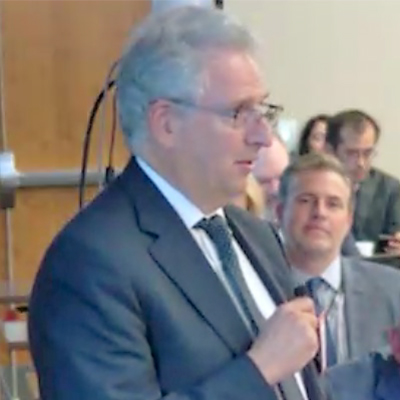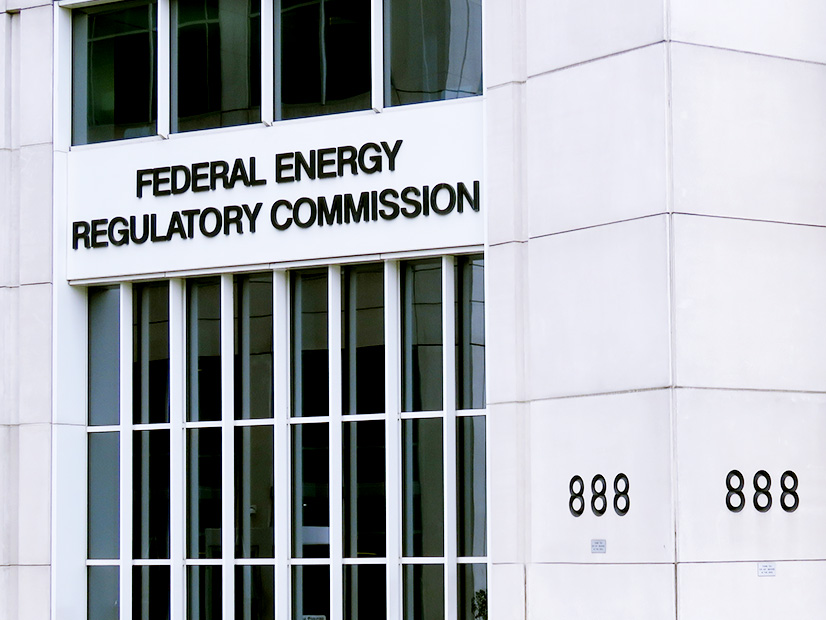FERC has responded to ERCOT’s request to correct an “incorrect statement” by making a small modification to its annual Winter Energy Market and Reliability Assessment, issued last week.
The commission Tuesday evening published a revised version of the report, correcting a passage related to ERCOT’s probabilistic assessments. Staff corrected the original language by adding “low” before probability and deleting “significant” before risk.
That changed the original sentence from describing ERCOT’s 2022-23 winter probabilistic assessment as indicating a “probability of a significant risk of declaring an EEA [energy emergency alert] Level 1” to indicating a “low probability of a risk of declaring an EEA.”
The original assessment apparently drew the attention of the Texas Public Utility Commission, which has regulatory oversight over ERCOT. A PUC spokesman said the report contained “inaccuracies” and that ERCOT had called on FERC to correct the record.
“ERCOT’s assessment reflected a ‘low’ probability of energy emergency events occurring during the expected daily peak load hour. We have asked FERC to correct this error, which they have done,” spokesperson Trudi Webster said in an email to RTO Insider.
The Texas grid operator plans to release its final winter assessment in mid-November.
In its assessment, FERC said that with above-average temperatures expected across most of the continental U.S., the country’s electric reliability appears well positioned for this winter. However, the commission singled out ERCOT, ISO-NE and MISO as being in danger of “especially tight” capacity during extreme weather conditions. (See “ERCOT, MISO Vulnerable to Winter Weather,” FERC: Natural Gas Prices to Rise During Mild Winter.)
During a press conference following FERC’s monthly open meeting Oct. 20, Chairman Richard Glick was asked whether the commission is confident ERCOT has addressed the issues from the February 2021 winter storm.
“Things have been moving in the right direction, but I think it would be premature and probably an overestimate to say everything is hunky-dory,” he said. “There are concerns going into this winter. The assessment … does discuss that ERCOT is one of the areas of concern.”
ERCOT has added winterization requirements for its members’ generating units after legislation and PUC rules passed in the wake of the winter storm. Staff dedicated to winterization now inspect generators to ensure compliance, and the PUC can also assess financial penalties on those that fall short of the requirements. Other generators have added firm fuel supply service to strengthen their availability.
The grid operator has also brought more generation online sooner and purchased additional reserve power, especially when the weather forecast is uncertain, as part of its conservative operations posture.
“The reliability of the Texas electric grid is our No. 1 priority,” Webster said.
PUC Chair Peter Lake and Gov. Greg Abbott, who appointed Lake to his post after the winter storm claimed the careers of his three predecessors, have both frequently said the Texas grid is more reliable than it has ever been.
 FERC Chair Richard Glick speaks before SPP’s board and stakeholders. | SPP
FERC Chair Richard Glick speaks before SPP’s board and stakeholders. | SPP“Things are improving, but there’s still a lot of work to be done in terms of winterizing plants,” Glick said.
Twice in the last week, Glick has recommended that ERCOT interconnect with its neighbors to be able to share power during emergencies. He noted that SPP and MISO did not suffer the same problems as ERCOT because they were able to import power.
“Texas, quite frankly, they’re a little bit stubborn because they don’t want to be subject to FERC regulation, and I understand that part,” he said during last week’s press conference. “But do you really want to cut your constituents off from power because you don’t want to be subject to FERC regulation and then have people die? That’s just not the right way to do it.”
On Tuesday, Glick made his first visit to SPP’s headquarters in Little Rock, Ark. His comments before the RTO’s Board and Directors and Members Committee were starker.
“We get pushback from Texas in particular saying, ‘Well, we don’t want to be subjected to FERC regulation,’” he said. “Well, I understand that’s an important issue. But are you willing to actually have hundreds of people die? Are you willing to have massive blackouts, four- or five-day blackouts, because you don’t have power from elsewhere?”




